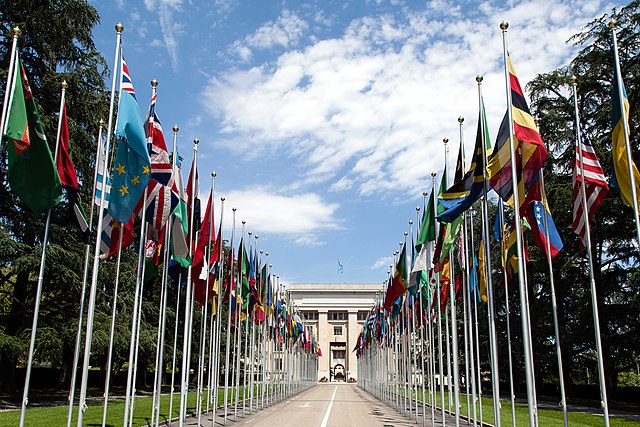
International relations
Study of relationships between two or more states / From Wikipedia, the free encyclopedia
Dear Wikiwand AI, let's keep it short by simply answering these key questions:
Can you list the top facts and stats about International relations?
Summarize this article for a 10 year old
International relations (IR) are the interactions among sovereign states. The scientific study of those interactions is also referred to as international studies, international politics,[2] or international affairs.[3] In a broader sense, the study of IR, in addition to multilateral relations, concerns all activities among states—such as war, diplomacy, trade, and foreign policy—as well as relations with and among other international actors, such as intergovernmental organizations (IGOs), international nongovernmental organizations (INGOs), international legal bodies, and multinational corporations (MNCs).[4][5] There are several schools of thought within IR, of which the most prominent are realism, liberalism, and constructivism.


International relations is widely classified as a major subdiscipline of political science, along with comparative politics, political methodology, political theory, and public administration.[6][7] It also often draws heavily from other fields, including anthropology, economics, geography, history, law, philosophy, and sociology.[8]
While international politics has been analyzed since antiquity, international relations did not become a discrete field until 1919, when it was first offered as an undergraduate major by Aberystwyth University in the United Kingdom.[6][9] After the Second World War, international relations burgeoned in both importance and scholarship—particularly in North America and Western Europe—partly in response to the geostrategic concerns of the Cold War. The collapse of the Soviet Union and subsequent rise of globalization in the late 20th century presaged new theories and evaluations of the rapidly changing international system.[10]